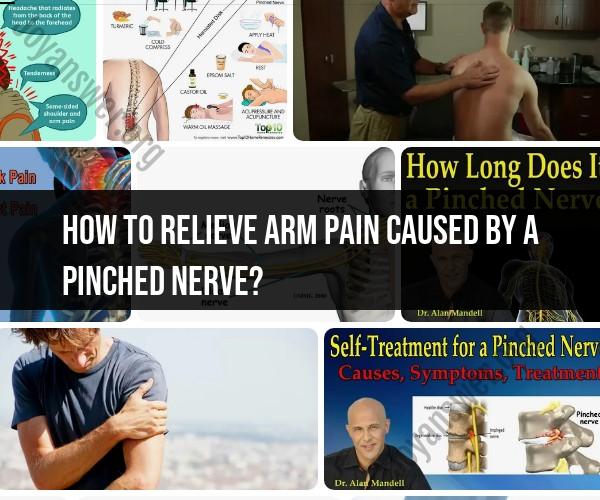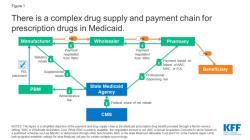How to relieve arm pain caused by a pinched nerve?
Arm pain caused by a pinched nerve can be uncomfortable and limiting, but there are several remedies and strategies you can try to alleviate the pain. It's important to note that if you suspect you have a pinched nerve or if the pain is severe or persistent, you should consult a healthcare professional for a proper diagnosis and treatment plan. Here are some general strategies for relieving arm pain from a pinched nerve:
Rest and Activity Modification:
- Give your arm and the affected nerve time to heal by avoiding activities that worsen the pain or put additional pressure on the nerve.
Physical Therapy:
- A physical therapist can create a customized exercise program to strengthen the muscles surrounding the pinched nerve, improve flexibility, and alleviate pain.
Posture Correction:
- Maintaining good posture, especially in the neck and upper back, can relieve pressure on the nerves in the cervical spine.
Heat and Cold Therapy:
- Applying heat or cold to the affected area may help reduce pain and inflammation. Cold packs can reduce swelling, while warm compresses can relax tense muscles.
Over-the-Counter Pain Medications:
- Non-prescription pain relievers like ibuprofen (Advil, Motrin) or naproxen (Aleve) may provide temporary relief from pain and inflammation. Follow the recommended dosage and guidelines.
Splinting or Bracing:
- In some cases, wearing a splint or brace to immobilize the affected area can relieve pressure on the pinched nerve and facilitate healing.
Ergonomic Adjustments:
- Make changes to your workspace or daily activities to reduce repetitive or awkward movements that may be contributing to the problem.
Gentle Stretching:
- Engage in gentle, controlled stretching exercises to alleviate tension and increase flexibility. Avoid overstretching, as it can exacerbate the issue.
Massage and Manual Therapy:
- Massage therapy or manual manipulation by a qualified healthcare provider can help relax tight muscles and reduce pressure on the pinched nerve.
Nerve Glide Exercises:
- Some physical therapists use nerve glide exercises to help move the nerve gently through its pathway, which can alleviate compression.
Acupuncture:
- Acupuncture may provide relief for some people by promoting circulation and reducing muscle tension.
Transcutaneous Electrical Nerve Stimulation (TENS):
- TENS therapy uses low-level electrical currents to stimulate nerves and reduce pain. This should be done under the guidance of a healthcare professional.
Corticosteroid Injections:
- In some cases, a healthcare provider may recommend corticosteroid injections to reduce inflammation and relieve pain.
Surgery:
- If conservative treatments do not provide relief, surgery may be necessary to relieve pressure on the nerve. This is typically considered a last resort.
It's crucial to work with a healthcare professional, such as a physical therapist or orthopedic specialist, to determine the most appropriate treatment plan for your specific condition. They can provide guidance, monitor your progress, and help you manage your arm pain effectively.
Relieving Arm Pain Caused by a Pinched Nerve: Solutions and Tips
Pain caused by a pinched nerve in your arm can be frustrating and debilitating. However, there are a number of solutions and tips that can help you relieve the pain and regain comfort and mobility in your arm.
Home Remedies and Self-Care
Some simple home remedies and self-care measures that can help relieve arm pain caused by a pinched nerve include:
- Rest. The most important thing you can do is to rest the affected arm and avoid any activities that aggravate the pain.
- Ice and heat. Apply ice to the affected area for 20 minutes at a time, several times a day. After a few days, you can switch to applying heat.
- Over-the-counter pain relievers. Nonsteroidal anti-inflammatory drugs (NSAIDs) such as ibuprofen or naproxen can help to reduce inflammation and pain.
- Splints and braces. In some cases, a splint or brace may be helpful to support the arm and reduce inflammation.
- Gentle stretching. Once the pain has subsided, you can begin to do gentle stretching exercises to help improve range of motion.
Exercises
Some specific exercises that may be helpful for relieving arm pain caused by a pinched nerve include:
- Neck stretches. Hold your head to the side for 10 seconds, then repeat on the other side.
- Shoulder rolls. Roll your shoulders forward and backward for 10 repetitions.
- Arm raises. Raise your arm straight out in front of you and hold it for 10 seconds. Then, lower your arm and repeat.
- Bicep curls. Hold a light weight in your hand and curl your arm up towards your shoulder. Then, lower your arm and repeat.
- Tricep extensions. Hold a light weight behind your head and extend your arm straight back. Then, lower your arm and repeat.
Medical Attention
If your arm pain is severe or does not improve with home remedies and self-care, it is important to seek medical attention. Your doctor may prescribe physical therapy, injections, or other treatments to help relieve the pain and improve your range of motion.
Regaining Comfort and Mobility
With proper care and treatment, most people with arm pain caused by a pinched nerve are able to regain comfort and mobility in their arm. However, it is important to be patient and consistent with your treatment plan.
Here are some additional tips for regaining comfort and mobility in your arm after a pinched nerve:
- Listen to your body. Don't push yourself too hard and don't do any activities that aggravate the pain.
- Be consistent with your exercises. Gentle stretching and strengthening exercises can help to improve range of motion and reduce the risk of re-injury.
- Use heat and ice as needed. Heat can help to relax muscles and reduce stiffness. Ice can help to reduce inflammation and pain.
- Get enough rest. Your body needs time to heal. Make sure to get plenty of sleep and rest your arm when possible.
If you have any concerns about your arm pain or recovery, be sure to talk to your doctor.











